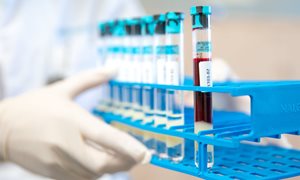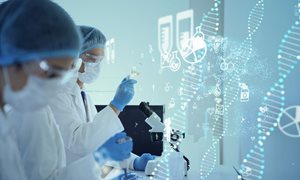 My name is is Jelle Zwaag and my nationality is Dutch/Hollands (so are my parents and grandparents, boring right?). I am a PhD candidate at the department of Intensive Care Medicine (in combination with the Radboud Center for Infectious Diseases RCI) and also in training to be an internal medicine specialist / internist (AIOS Interne), theme Infectious diseases and global health.
My name is is Jelle Zwaag and my nationality is Dutch/Hollands (so are my parents and grandparents, boring right?). I am a PhD candidate at the department of Intensive Care Medicine (in combination with the Radboud Center for Infectious Diseases RCI) and also in training to be an internal medicine specialist / internist (AIOS Interne), theme Infectious diseases and global health.
When you were a kid what did you want to be when you grew up? Can you tell us something about your child years.
My child years were spend as the oldest brother of 3 boys in a small village about 45 minutes north of Amsterdam. Concerning my desired profession at the time, I would have to check my `Friend Books` (which everybody had in Holland in the late `90s), but I am pretty sure it rotated each year between the classics like police-officer/pilot/veterinarian. It was only in my senior year in high school I decided to apply for medical school.
What was your previous academic training, where did you study and why that study?
I moved to Nijmegen in 2004 to start my bachelor in medicine (actually it wasn`t called a bachelor back then, yes I feel old *coughs*) and have never left. My high school dean suggested in my last year that being a doctor was something she could see me be. I never had considered that, but I fully agree with her now (in the end, it is all about your motivation and persistence, not about IQ or grade average!) . An online job test suggested that I should be a gardener or something, so ever since I always trust personal advice more that an algorithm hahaha.
The RIMLS motto is: ‘Today’s molecules for tomorrow’s medicine’. What does this mean for you?
In tomorrow`s medicine, I think one of the most important tasks for me as a clinician is the translation of research to the patient sitting in front of me. With all the new professions and technology taking over the more standard and `mundane` medical procedures, my job will focus more and more on using fresh information of molecular science to answering the not-so-obvious questions that arise from complex patients not fitting into the standard `flow charts`. I am very proud to be a small shackle in this chain.
Who is your great example as scientists? And please give a motivation why.
Definitely Peter Pickkers and Matthijs Kox. Their ability to combine working hard with playing hard is awe-inspiring and magnificent.
Which research discovery that you have made has made you most proud?
We found that the techniques of `Iceman` Wim Hof are more than just a circus act. His techniques, including several breathing techniques and exposure to cold, have actually helped a lot of people deal with a broad variety of complaints. However, all of these individual testimonials have a very low scientific value. We took the first step in elucidating the underlying mechanisms in a scientifically sound, controlled, step-by-step manner and provided a possible physiological explanation for the observed effects. These mechanisms are off course now topic of my PhD.
Given unlimited finance what experiment would you perform?
I would build a big research center in which I could admit patients with long lists of complaints and long lists of medications that are bounced around between different specialties and their general physician. The intervention would consist of stopping at least 90% of their medication (okay, they can take anticoagulants if they just had a stent or something like that). Then undergo a full diagnostic and treatment course in which me and my team would focus on changing lifestyle, especially eating behavior and cessation of smoking.
What does your working area (desk, office) look like and what does it say about you (or your research)?
I am hopping between workstations these weeks, as the department is a little bit full right now. I think it shows that I am flexible and able to work with almost everybody without much problems. It actually is inspiring to rotate workplaces every so often!
Nominate a colleague to be in the spotlight and what would you like to ask him or her?
Aron Jansen (Aron.Jansen@radboudumc.nl), I have a professional and a personal question:
- Given unlimited amounts of zinc, how many gastrointestinal microbiome samples would you like to acquire during human endotoxemia?
- What kind of trip/vacation would you take us/your PhD-colleagues on, given unlimited finance?
What type of person are you, quick insights:
a) Mac or PC? : PC, the master race (first game ever played: Prince of Persia, I still get sweaty hands thinking about that first level)b) Theater or cinema? : Cinema, no I am not a man of culture as much as I would like to be
c) Dine out or dine in? : Dine out. Big chunks of charred meat with loads of red wine. MORE WINE!
d) Ferrari or Fiat? : I say NO to that Italian garbage, KIA RIO for the win!!!!!!
e) Shopaholic or chocoholic? : Chocoholic (tip: Tony Chocolonely white chocolate with raspberry)
f) Culture or Nature : Culture! Me and my wife make only city-trips, no nasty bugs or dangerous animals for me :D Plus, I look ridiculous in zip-off pants.
Related news items
.aspx?width=4000&height=2659&ext=.jpg&type=BlockColumn1Zoom1)
Antihypotensive agent disrupts the immune system in sepsis
11 June 2020 Patients who go into shock caused by sepsis are treated with norepinephrine. Researchers from Radboudumc published results in today’s American Journal of Respiratory and Critical Care Medicine revealing that its use is not without drawbacks. go to page
Supervisor of the year Matthijs Kox
16 January 2019 For the second time the RIMLS PhD council organized the Supervisor election with many nominees. This year's winner is Matthijs Kox, theme Infectious diseases and global health. go to page
Volunteering to become ill to help researchers understand infectious diseases
3 December 2018 Radboudumc has combined its research into controlled human infection models to create a new program: the Radboudumc Controlled Human Infection Models (RCHIM). go to page
Sepsis-associated acute kidney injury: A randomized clinical trial
15 November 2018 Peter Pickkers, theme Infectious diseases and global health, published in JAMA, that among patients who were critically ill with sepsis-associated acute kidney injury, human recombinant alkaline phosphatase compared with placebo did not significantly improve short-term kidney function. go to page
